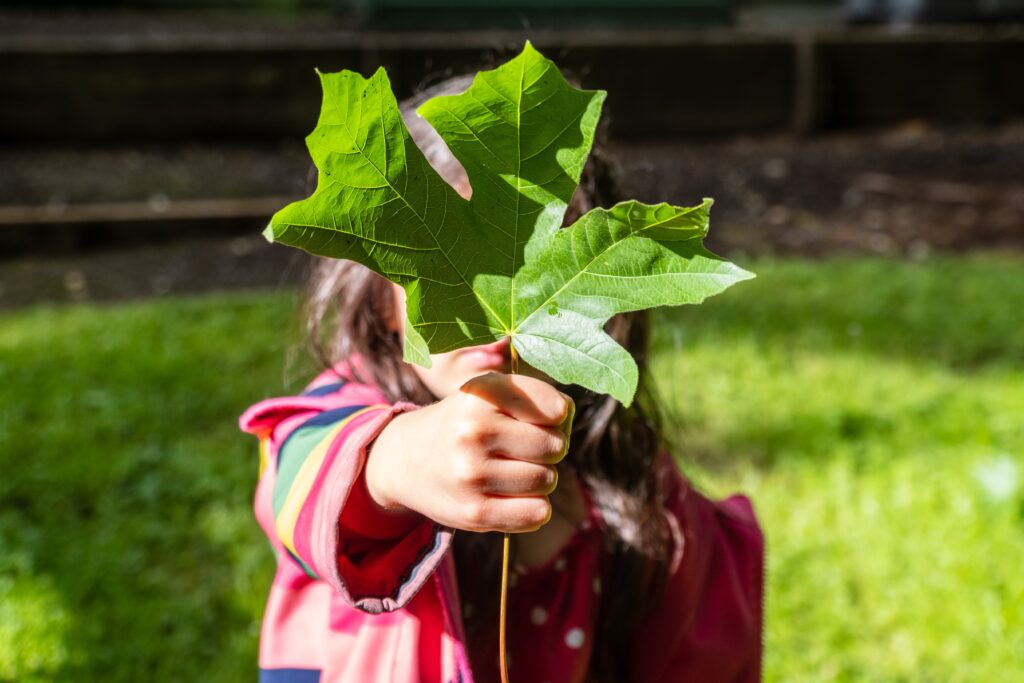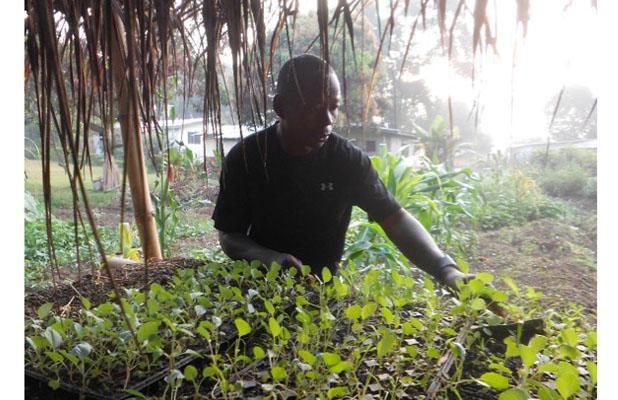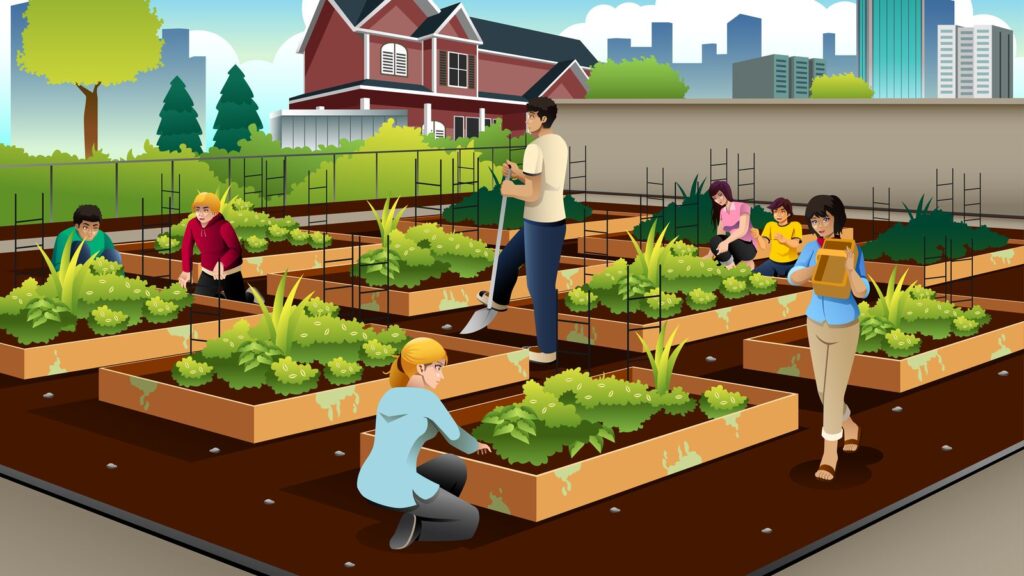Welcome to the world of urban gardening. Urban gardening is a captivating and rapidly growing trend that has captured the attention of individuals, communities, and even cities worldwide. In this article, we will embark on an exciting journey into the realm of urban gardening and delve into the various reasons why it has become so popular. By exploring the remarkable benefits it offers, we’ll gain a deeper understanding of why more and more people are embracing this green movement.
Health Benefits of Urban Gardening

One of the key advantages of urban gardening is the opportunity it provides to engage in physical activity. Tending to plants, digging soil, and carrying out gardening tasks are all excellent forms of exercise that can contribute to improved physical fitness and overall well-being. Instead of being sedentary, urban gardening encourages movement and promotes an active lifestyle.
As urban gardeners, we find ourselves bending, stretching, and reaching as we tend to our plants. These actions promote flexibility and enhance muscle strength. Whether it’s sowing seeds, pruning branches, or harvesting produce, each gardening task involves physical movements that can help us stay fit and agile.
Gardening is not just a leisurely pastime; it can be a fantastic workout for our hearts. The rhythmic motions, such as raking or digging, elevate our heart rate, promoting cardiovascular health. By engaging in regular gardening activities, we can improve blood circulation, strengthen our heart muscles, and reduce the risk of cardiovascular diseases.
In today’s fast-paced urban environments, stress and anxiety have become prevalent issues. Urban gardening serves as a therapeutic escape from the hustle and bustle of daily life. Spending time in nature, nurturing plants, and being exposed to greenery can significantly reduce stress levels and alleviate anxiety. The peaceful and serene ambiance of a garden provides a welcome respite from the pressures of the outside world.
Gardening has a remarkable effect on our mood and mental clarity. Caring for plants and witnessing their growth and blossoming instills a sense of joy and accomplishment. The release of endorphins during gardening promotes feelings of happiness and contentment. Furthermore, being in a natural environment has a calming effect on our minds, enhancing mental clarity and improving overall cognitive function.
Urban gardening provides a unique sense of accomplishment and purpose. Witnessing the fruits of our labor, quite literally, as our plants thrive and produce an abundance of fresh vegetables or beautiful flowers, fills us with a deep sense of satisfaction. Urban gardeners take pride in knowing that they are actively contributing to their own well-being and the environment around them.
Environmental Benefits of Urban Gardening

Urban areas often face challenges related to air pollution due to increased industrialization and vehicular emissions. Urban gardening plays a vital role in mitigating this issue. Through the process of photosynthesis, plants absorb carbon dioxide and release oxygen, improving air quality. By incorporating green spaces within cities, we can create a natural buffer that filters harmful pollutants and revitalizes the air we breathe.
In addition to mitigating air pollution, urban gardening helps reduce the carbon footprint of urban areas. By planting trees and other vegetation, we contribute to carbon sequestration. Plants absorb carbon dioxide, a greenhouse gas responsible for climate change, and store it within their biomass. This act of carbon sequestration helps in offsetting the carbon emissions generated by urban activities, making cities more environmentally sustainable.
Urban environments often experience the urban heat island effect, where the temperature rises due to the abundance of concrete and asphalt. Urban gardening helps combat this issue by creating urban microclimates. Through the shade provided by trees and the cooling effect of evapotranspiration, gardens can help lower temperatures in their immediate vicinity, making urban areas more comfortable and liveable.
Water scarcity is a growing concern in many regions. Urban gardening can contribute to the conservation and sustainable management of water resources. By implementing efficient irrigation systems, such as drip irrigation or rainwater harvesting, we can reduce water consumption and minimize waste. These sustainable water practices ensure that water is used judiciously and that it benefits both the plants and the surrounding ecosystem.
Urbanization often leads to increased water runoff, resulting in soil erosion and the loss of valuable topsoil. Urban gardening provides a solution to this problem by promoting the absorption of rainwater into the soil. The plants and vegetation act as natural sponges, reducing water runoff and preventing soil erosion. This not only protects the garden but also contributes to the overall health of urban ecosystems.
Urban gardening aids in enhancing water filtration and promoting groundwater recharge. The root systems of plants help filter contaminants and pollutants present in rainwater, allowing it to percolate into the ground. This process replenishes the groundwater reservoirs and helps maintain a sustainable water cycle in urban areas.
Urban gardening plays a crucial role in supporting pollinators and beneficial insects. By growing a diverse range of flowering plants, urban gardens attract bees, butterflies, and other pollinators essential for plant reproduction. These insects contribute to pollinating not only garden crops but also native plants, thereby promoting biodiversity and ensuring the survival of various plant species.
Urbanization often leads to the loss of native plant species and habitats. However, through urban gardening, we have the opportunity to conserve and preserve these valuable plant species. By incorporating native plants into our gardens, we create habitats that mimic natural ecosystems and provide refuge for native flora and fauna.
Urban gardens act as sanctuaries for wildlife in highly developed areas. Birds, squirrels, and other urban-adapted animals find shelter, food, and nesting sites within these green spaces. By providing habitats and resources, urban gardening contributes to the conservation of urban wildlife populations, fostering a harmonious coexistence between humans and nature.
Economic Benefits of Urban Gardening

One of the significant economic advantages of urban gardening is the ability to produce fresh and organic food right at home. By growing fruits, vegetables, and herbs, urban gardeners can save money on grocery expenses while enjoying the benefits of nutritious, pesticide-free produce. This self-sufficiency in food production contributes to personal and household savings.
The rising costs of groceries can be a burden on household budgets. However, with an urban garden, individuals can significantly reduce their grocery expenses. By growing their own food, they eliminate the need to purchase certain vegetables or herbs, resulting in long-term savings. Additionally, the surplus produce from the garden can be preserved or shared with others, further reducing the overall food costs.
Urban gardening plays a vital role in promoting food security and self-sufficiency. By cultivating food in urban areas, we reduce the dependency on external food sources and contribute to local food resilience. This becomes particularly important during times of crises or disruptions in the food supply chain. Urban gardens provide a reliable source of fresh produce, ensuring access to nutritious food for individuals and communities.
Urban gardening not only benefits individuals but also presents entrepreneurial opportunities. Urban gardeners can sell their surplus produce, herbs, flowers, or value-added garden products. Farmers’ markets, local food cooperatives, or online platforms provide avenues to connect with potential customers and generate income from the fruits of their labor.
Farmers’ markets and community-supported agriculture (CSA) programs offer platforms for urban gardeners to showcase and sell their products directly to consumers. By participating in these initiatives, urban gardeners can build relationships with the local community, contribute to the local economy, and generate income through the sale of their fresh, locally-grown produce.
The growth of urban gardening has led to the emergence of urban agriculture as a viable industry. As more people engage in urban gardening, the demand for related products and services increases. This, in turn, creates job opportunities in various sectors, such as garden design and installation, urban farming consultation, sustainable landscaping, and the development of innovative urban agricultural technologies.
Social Benefits of Urban Gardening

Urban gardening has a remarkable ability to bring people together and foster community engagement. Shared gardening spaces and community gardens provide platforms for individuals to come together, share their knowledge and experiences, and collectively nurture plants. These spaces encourage cooperation, collaboration, and a sense of belonging, strengthening the social fabric of neighborhoods.
In today’s fast-paced and digitally connected world, it is easy to lose touch with our neighbors. However, urban gardening offers a unique opportunity to bridge that gap and build connections. As urban gardeners tend to their plants, they naturally interact with others who share their passion. These interactions create opportunities for conversations, friendships, and the development of a supportive network within the community.
Urban gardening serves as a catalyst for social interactions and cooperation. Community gardening projects often involve shared responsibilities and collaborative efforts. Gardeners come together to plan, plant, and maintain the garden, fostering teamwork and a sense of collective achievement. The act of gardening becomes a social activity that promotes communication, the exchange of ideas, and the forging of meaningful relationships.
Urban gardening provides a rich educational platform for individuals of all ages. It offers an opportunity to learn about plant biology, horticulture, soil science, and sustainable gardening practices. Through hands-on experience, urban gardeners develop practical skills and gain valuable knowledge that can be shared with others. This exchange of information promotes lifelong learning and the cultivation of a greener, more knowledgeable society.
By involving children and young people in urban gardening, we can instill a sense of environmental responsibility and teach them sustainable practices from an early age. Engaging in gardening activities exposes them to concepts such as composting, organic gardening methods, and the importance of biodiversity. These valuable lessons empower future generations to become stewards of the environment and advocates for sustainable living.
Urban gardening serves as a powerful tool for promoting healthy eating habits and nutritional education. When individuals grow their own food, they become more connected to the source of their sustenance. This connection fosters an appreciation for fresh, wholesome food and encourages the consumption of a diverse range of fruits, vegetables, and herbs. Through urban gardening, we can address issues of food literacy and promote a culture of health and well-being.
Aesthetics and Livability

Urban gardening has a transformative effect on the visual aesthetics of cities. By incorporating green spaces, rooftop gardens, vertical gardens, and urban farms, we can soften the concrete jungles and create visually appealing landscapes. The vibrant colors of flowers, the lush foliage of plants, and the diversity of vegetation add beauty and charm to urban environments, making them more inviting and livable.
Urban gardens have the power to turn ordinary spaces into extraordinary havens of beauty and tranquility. Whether it’s a balcony garden, a pocket park, or a rooftop oasis, these green spaces offer a retreat from the urban chaos. They provide a sanctuary where individuals can relax, rejuvenate, and reconnect with nature, enhancing the overall quality of life in urban areas.
Urban gardening contributes to the overall livability and quality of urban areas in multiple ways. By enhancing the visual appeal, reducing pollution, and creating green spaces for relaxation and recreation, urban gardens enhance the well-being of residents. They promote a sense of pride in the local environment, attract visitors, and contribute to the overall reputation and desirability of the city.
The presence of plants and trees in urban gardens can act as natural sound barriers, reducing noise pollution in crowded cities. The dense foliage absorbs and deflects sound waves, creating a more peaceful and serene environment. This noise reduction contributes to a better quality of life, improving mental well-being and creating a more conducive atmosphere for work, relaxation, and sleep.
Urban gardening not only acts as a sound barrier but also helps absorb noise, thereby reducing urban noise pollution. The leaves, branches, and vegetation in gardens act as acoustic absorbers, dampening noise and preventing its reflection. This natural noise reduction enhances the acoustic environment, making urban spaces more pleasant and harmonious.
The presence of plants in urban gardens plays a crucial role in filtering and improving air quality. Through photosynthesis, plants absorb pollutants and release oxygen, effectively purifying the air. The leaves also act as filters, trapping dust particles and pollutants, thereby reducing their concentration in the surrounding environment. This natural air purification contributes to a healthier and cleaner urban atmosphere.
Overcoming Challenges in Urban Gardening

In densely populated urban areas, space for gardening can be limited. However, innovative techniques such as vertical gardening offer solutions to overcome this challenge. Vertical gardens utilize vertical surfaces, such as walls or trellises, to grow plants vertically, maximizing the use of limited space. By utilizing techniques like container gardening or hydroponics, urban gardeners can cultivate a wide variety of plants even in small areas.
Container gardening is an ideal solution for urban gardeners with limited space. It involves growing plants in containers such as pots, raised beds, or hanging baskets. Container gardening offers flexibility and allows individuals to garden on balconies, rooftops, or even indoors. With the right selection of containers and appropriate soil mixtures, urban gardeners can create thriving gardens in compact spaces.
Rooftops and balconies provide the untapped potential for urban gardening. With proper planning and design, these spaces can be transformed into productive gardens. Rooftop gardens can utilize raised beds or container gardening techniques, while balconies can host vertical gardens or compact planters. By harnessing these overlooked areas, urban gardeners can make the most of available space and create lush green oases in the heart of the city.
In urban environments, soil quality can be a concern due to contamination or lack of fertile soil. Raised bed gardens offer a solution by creating controlled growing environments. By filling raised beds with high-quality soil, compost, and organic amendments, urban gardeners can ensure optimal soil conditions for plant growth. This approach allows for better drainage, nutrient retention, and the ability to address specific soil needs.
Soilless systems, such as hydroponics or aquaponics, provide an alternative to traditional soil-based gardening. These systems use nutrient-rich water solutions or fish waste as a source of nutrients, eliminating the need for soil altogether. Urban gardeners can cultivate a wide range of plants using these soilless systems, making them well-suited for indoor or limited-space gardening.
Composting is a valuable practice in urban gardening for enriching the soil. By composting kitchen scraps, yard waste, and other organic materials, urban gardeners can create nutrient-rich compost that improves soil fertility and structure. Additionally, organic soil amendments, such as composted manure or vermicompost, can be incorporated to enhance soil health, increase nutrient availability, and promote beneficial soil microorganisms.
Urban gardening enthusiasts often encounter zoning laws and regulations that can limit or regulate gardening activities. Understanding and navigating these regulations is essential for successful urban gardening. Local governments and community organizations may have specific guidelines regarding garden size, structures, and allowable plantings. By familiarizing themselves with these regulations, urban gardeners can ensure compliance and create gardens that adhere to local standards.
Building relationships and engaging with local authorities and community organizations is crucial for fostering support and advocacy for urban gardening. By collaborating with local officials, urban gardeners can raise awareness about the benefits of gardening and advocate for policies that encourage and facilitate urban gardening initiatives. Community organizations can also provide resources, expertise, and networking opportunities to support and strengthen urban gardening efforts.
Urban gardening thrives when there is a strong support network and advocacy for its benefits. By connecting with other urban gardeners, joining gardening clubs or associations, or participating in community gardening events, individuals can build a network of like-minded individuals who share their passion. This network can provide valuable advice, support, and opportunities for collaboration. Furthermore, advocating for urban gardening through public awareness campaigns, educational initiatives, and partnerships with local organizations can help garner support and promote the expansion of urban gardening initiatives.
Conclusion and final thoughts 💭
Urban gardening is gaining popularity for a multitude of reasons. From the physical and mental health benefits to the positive environmental impact, economic advantages, social engagement, and enhanced livability, urban gardening offers a host of advantages to individuals and communities.
Through urban gardening, individuals can improve their physical well-being by engaging in physical activity and benefiting from the mental and emotional rewards of nurturing plants. Urban gardens also play a crucial role in greening urban spaces, mitigating air pollution, conserving water resources, and promoting biodiversity and wildlife conservation.
Economically, urban gardening provides cost savings through producing fresh and organic food, reducing grocery expenses, and contributing to food security and self-sufficiency. It also presents entrepreneurial opportunities, such as selling surplus produce and participating in farmers’ markets and community-supported agriculture programs. Additionally, urban gardening creates local job opportunities in the urban agriculture sector.
Socially, urban gardening fosters community engagement by creating shared gardening spaces and building connections among neighbors. It offers educational opportunities, promoting gardening knowledge and skills, teaching sustainable practices to future generations, and encouraging healthy eating habits and nutritional education.
Urban gardening enhances the aesthetics and livability of urban areas by adding greenery, creating beautiful and vibrant spaces,
improving the overall quality of urban landscapes. By serving as natural sound barriers, urban gardens help reduce noise pollution, creating a more peaceful environment. They also filter and improve air quality, contributing to a healthier and cleaner urban atmosphere.
Despite the challenges posed by space limitations and soil quality concerns, urban gardening can be overcome through innovative techniques. Vertical gardening solutions maximize space by utilizing vertical surfaces, while container gardening techniques allow for gardening in small areas. Rooftops and balconies provide additional opportunities for urban gardening, transforming underutilized spaces into productive gardens.
Addressing soil quality and contamination concerns can be achieved through soil testing, remediation, and the use of raised bed gardens or soilless systems. Composting and the incorporation of organic soil amendments further enhance soil fertility and health.
Navigating zoning laws and regulations is crucial for successful urban gardening. By understanding and complying with local regulations, urban gardeners can create gardens that adhere to guidelines and contribute positively to their communities. Engaging with local authorities and community organizations helps build support and advocacy for urban gardening, fostering a favorable environment for its growth.
Urban gardening is a powerful movement that brings numerous benefits to individuals, communities, and the environment. It promotes physical and mental well-being, enhances the urban landscape, improves air and water quality, fosters community engagement, and provides economic opportunities. By embracing urban gardening, individuals can make a positive impact on their health, environment, and community. So, why not start your own urban gardening journey today? Get your hands dirty, nurture plants, and experience the incredible rewards that urban gardening has to offer.



